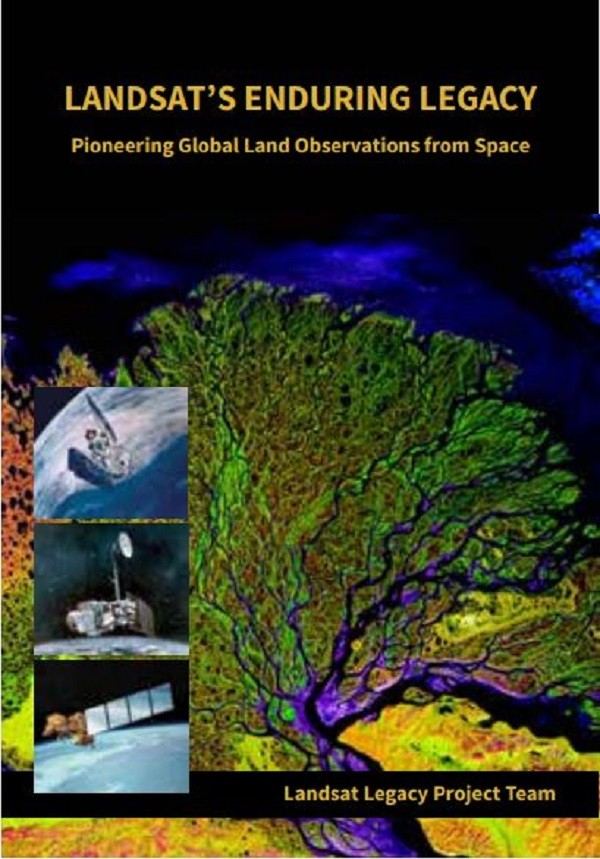Landsat’s Enduring Legacy Pioneering Global Land Observations from Space
After more than 15 years of research and writing, Emeritus Professor Samuel Goward, Adjunct Professor Darrel L. Williams and Alumnus Jim Irons and others from the Landsat Legacy Project Team are publishing their long- awaited book on the nearly half-century of monitoring the Earth’s lands with Landsat.
Born of technologies that evolved from the Second World War, Landsat not only pioneered global land monitoring but in
the process drove innovation in digital imaging technologies and encouraged development of global imagery archives. Access to this imagery led to early breakthroughs in natural resources assessments, particularly for agriculture, forestry, and geology. The technical Landsat remote sensing revolution was not simple or straightforward. Early conflicts between civilian and defense satellite remote sensing users gave way to disagreements over whether the Landsat system should be a public service or a private enterprise. The failed attempts to privatize Landsat nearly led to its demise. Only the combined engagement of civilian and defense organizations ultimately saved this pioneer satellite land monitoring program. With the emergence of 21st century Earth system science research, the full value of the Landsat concept and its continuous 45-year global archive has been recognized and embraced. Discussion of Landsat’s future continues but its heritage will not be forgotten. The pioneering satellite system’s vital history is captured in this notable volume on Landsat’s Enduring Legacy. The volume will be published in November in collaboration with the American Society for Photogrammetry and Remote Sensing (ASPRS) but early copies are available now for those planning to attend the Pecora Conference (See flyer). For those not attending the Pecora Conference, ordering information can be found here.
Published on Thu, 09/14/2017 - 11:31


